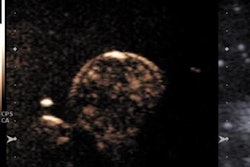The quality of breast cancer care among female Medicare beneficiaries in the U.S. territories is lower than for those in the continental U.S., according to a study published in the March issue of Health Affairs.
A team led by Tracy Layne, PhD, from the U.S. National Cancer Institute compared female Medicare beneficiaries who were residents of U.S. territories and had surgical treatment for breast cancer between 2008 and 2014 with those in the continental U.S. Layne and colleagues evaluated their receipt of care such as diagnostic needle biopsy and adjuvant radiation therapy following breast-conserving surgery, as well as the timeliness of that care (Health Affairs, March 2018, Vol. 37:3, pp. 421-428).
The researchers found that residents of the territories were less likely to receive recommended care, with 24% lower odds of receiving diagnostic needle biopsy and 34% lower odds of receiving adjuvant radiation therapy. They were also less likely to receive timely care, with 45% lower odds of receiving surgery and 82% lower odds of receiving adjuvant radiation therapy within three months.
"Further research is needed to identify barriers to the provision of adequate and timely breast cancer care in this unique population," the group concluded.



















